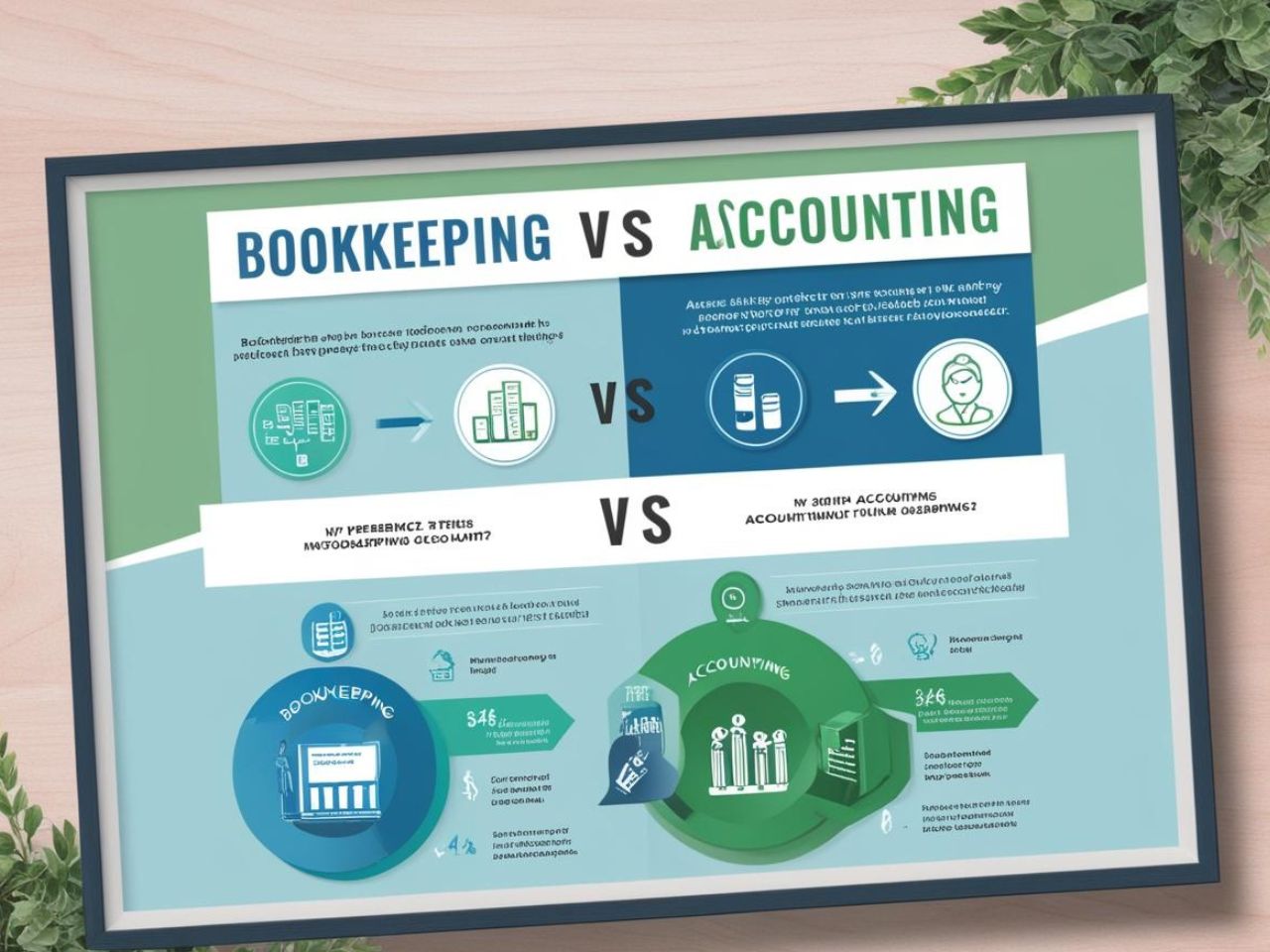Bookkeeping vs. Accounting: What’s the Difference and Why It Matters?

Introduction
Many business owners often use bookkeeping and accounting interchangeably, assuming they mean the same thing. However, these are two distinct financial functions that work together to ensure the financial stability and success of a business. Understanding the difference between bookkeeping and accounting is crucial for effective financial management and long-term business growth.
Key Differences Between Bookkeeping & Accounting
While both bookkeeping and accounting deal with financial data, their roles and responsibilities differ significantly. Here’s a breakdown of each function:
Bookkeeping
Bookkeeping is the foundation of financial management. It focuses on recording and organizing financial transactions, ensuring accuracy and compliance. The key tasks involved in bookkeeping include:
Recording daily financial transactions (sales, purchases, receipts, and payments)
Maintaining and reconciling ledgers, journals, and bank statements
Managing invoices and payroll
Tracking accounts payable and receivable
Ensuring accurate financial documentation for compliance and audits
Accounting
Accounting goes beyond recording transactions; it involves analyzing, summarizing, and interpreting financial data to provide meaningful insights. The key responsibilities of accounting include:
Preparing financial statements (profit & loss statement, balance sheet, cash flow statement)
Analyzing business performance and financial trends
Handling tax planning and compliance
Conducting audits and ensuring regulatory adherence
Offering financial advice to support strategic decision-making
Why Both Are Important for Your Business
For a business to thrive, both bookkeeping and accounting play essential roles. Here’s why:
1. Bookkeeping Ensures Accuracy and Organization
Proper bookkeeping keeps financial records organized, allowing businesses to track cash flow, monitor expenses, and maintain financial accuracy. Without bookkeeping, businesses risk mismanaging their finances, leading to inefficiencies and errors.
2. Accounting Helps in Decision-Making
Accounting helps business owners and stakeholders make informed financial decisions. By analyzing financial data, businesses can identify growth opportunities, reduce costs, and ensure profitability.
3. Compliance with UAE Financial Regulations
In the UAE, businesses must adhere to strict financial and tax regulations, including VAT compliance. Both bookkeeping and accounting play a vital role in ensuring businesses meet legal requirements, avoid penalties, and maintain transparency.
4. Improved Financial Planning
Bookkeeping provides the data, and accounting interprets it to assist in budgeting, forecasting, and financial strategy. This combination helps businesses set realistic financial goals and optimize resources.
Young & Right – Your Trusted Financial Partner
At Young & Right, we understand the importance of accurate bookkeeping and expert accounting in running a successful business. Our team of professionals offers tailored financial solutions to help UAE businesses maintain clarity, compliance, and financial efficiency.
Our Services Include:
Professional bookkeeping services to keep your records up to date
Expert accounting solutions for financial analysis and reporting
VAT compliance and tax planning assistance
Payroll management and financial advisory services
By partnering with Young & Right, you gain access to financial experts who ensure that your business stays financially healthy and legally compliant.
Call to Action
Need bookkeeping or accounting support? Contact Young & Right today to streamline your financial processes and make data-driven business decisions with confidence!
Get in Touch
